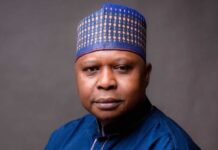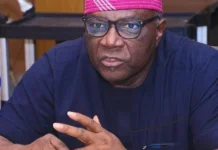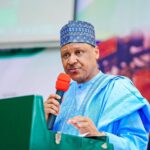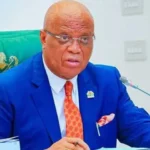Nigeria’s main opposition party, the Peoples Democratic Party (PDP), has suffered yet another major setback following the defection of Governor Peter Mbah of Enugu State and the resignation of Bayelsa State Governor, Douye Diri, within 48 hours.
Mbah announced his defection to the All Progressives Congress (APC) on Tuesday, while Diri formally resigned from the PDP on Wednesday, deepening the party’s ongoing internal crisis and further weakening its presence across the country.
With the latest departures, the PDP now controls only eight states, while the ruling APC firmly holds 24 states.
Earlier this year, Governors Umo Eno of Akwa Ibom and Sheriff Oborevwori of Delta also crossed over to the APC, citing persistent leadership instability and “lack of direction” within the PDP.
Until this week, Enugu and Bayelsa were considered traditional PDP strongholds, having remained under the party’s control for 26 years since Nigeria’s return to democracy in 1999.
Political observers say the defections mark a critical erosion of PDP influence in the South-South and South-East, two regions that historically served as the backbone of the party’s electoral dominance.
As of Wednesday, October 15, the PDP now governs the following eight states:
- Adamawa — Ahmadu Fintiri (North-East)
- Bauchi — Bala Mohammed (North-East)
- Plateau — Caleb Mutfwang (North-Central)
- Taraba — Agbu Kefas (North-Central)
- Zamfara — Dauda Lawal (North-West)
- Oyo — Seyi Makinde (South-West)
- Rivers — Siminalayi Fubara (South-South)
- Osun — Ademola Adeleke (South-West)
However, there are growing rumours that Governor Agbu Kefas of Taraba State may also be on the verge of resignation, potentially dealing another blow to the party’s already fragile structure.










